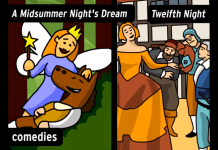![seth[1] seth[1]](http://www.teleread.com/wp-content/uploads/2010/08/seth1_thumb.jpg) Galleycat has a tidbit from a forthcoming Mediabistro feature on marketing guru Seth Godin: Godin has pledged never again to publish books via traditional publishers. Godin said, in part:
Galleycat has a tidbit from a forthcoming Mediabistro feature on marketing guru Seth Godin: Godin has pledged never again to publish books via traditional publishers. Godin said, in part:
I like the people, but I can’t abide the long wait, the filters, the big push at launch, the nudging to get people to go to a store they don’t usually visit to buy something they don’t usually buy, to get them to pay for an idea in a form that’s hard to spread
Godin is no stranger to direct-to-consumer e-publishing. In 2001, he released his book Unleashing the Ideavirus simultaneously with its print publication as a free PDF and Peanut Reader (eReader) e-book. Apt, since the book was all about the idea of harnessing the power of Internet memes in marketing. (It’s still available as a PDF, but alas, the book vanished from my shelf after Peanut Press stopped distributing it for Godin. Even Godin said he didn’t know what had happened to it when I emailed him. I wish I’d thought to archive a copy of it.)
More recently, Godin has said that what the e-book biz really needs is a $49 “paperback” Kindle. He may be right—and sooner or later, the prices will fall to that level regardless. Certainly, a $49 Kindle would provide a way for a lot more people to read the e-books Godin is going to publish in the future.
Gamblers and Cobblers
It’s worth noting that Seth Godin will probably do all right with his self-e-publishing because he’s already built his reputation the old-fashioned way. (Just as Stephen King was able to milk over four hundred grand out of a “failure” that he never finished, due to being Stephen King.) Newer authors, or authors without as much of a reputation, will have a lot tougher time of it.
On the other hand, a number of self-publishing authors, such as Henry Melton, are making, if not a fortune, at least something close to a living wage out of their work. Mike Masnick over at Techdirt wrote a piece on this recently—using musicians as the example rather than authors, but the example applies equally in both areas.
Masnick writes:
[Laure Parsons at QuestionCopyright] calls the old model — the one we described as the lottery ticket — as the "gambler model," where you’re basically rolling the dice on whether or not your career will be a success or will plummet. And notes that the "cobbler model" [in which artists “cobble together successful careers”] may not be as sexy, but you have a higher likelihood of success. The risk is lower, and the payoff is likely lower, but you can actually build a predictable career around it — and for many content creators, that’s certainly good enough.
As Masnick then points out, there is room for both gamblers and cobblers in the current state of things—which is better than the old system, in which everyone had to be a gambler because there simply weren’t support mechanisms in place for people who wanted to go it alone.
So best of luck to Godin, who may have already proven that you don’t need a traditional publisher to spread an “ideavirus”.

































Being Seth Godin, he might make it work and, I have no doubt he is right that others will too. It’s important though, that authors don’t get blinded by the success of the few or the dazzling percentages in play for the independents. I have no idea how accurate the figure is but publishing statistics from Dan Poynter indicate that there are over 6 million manuscripts out there looking for a home at present. There is room for every model and as long as the lone wolf understands the Everest ahead of her, she is better prepared to scale it.
It is often said that work has just begun when a novel is finished. I think this is going to be the mantra for writers in the years ahead. Creativity has to escape the page and inform the whole project – even if it is just to get the work into a position for a business champion to step in and make it fly.
The prospect is exciting and the philosophy one that I embrace without reservation. I do worry, however, that the product of modest, shy, and yet brilliant authors may be denied us and that is a crying shame.
I am not interested in being a businessman but I do have ideas (one of which was offered funding from a significant Asian businessman – I declined in order to write).
I would be happy to pass these ideas to others who might help make it happen. One such, lends itself to the open-source community. I don’t want anything in return except the chance to nudge things in the right direction.
Take a look at my website if you want to see the sort of thing I believe an author has to do to get his work out to readers. Making them available as ebooks or hoping that your brilliance will shine through is not nearly enough. (Note my current project has nothing to do with the ideas I’d like to share with those who are capable of making them happen).
I agree fully with your comments Paul. I posted on his a few weeks ago to the same affect in a comment. We are in the transition period between the old marketing structure and a wholly new one for a new age and technology. In between I see a darkness where a lot of new writers and middle ranking writers could easily lose out as the Publishers stutter with promotional expenditure and routes to market in the eBook world don’t exist yet. The new world of eBooks will generate a new structure of sites offering eBooks for sale in parallel with a range of promotional routes for those writers, through communities, forums, recommendation systems, comment systems, book reading clubs, etc etc. But for now that structure is not in place.